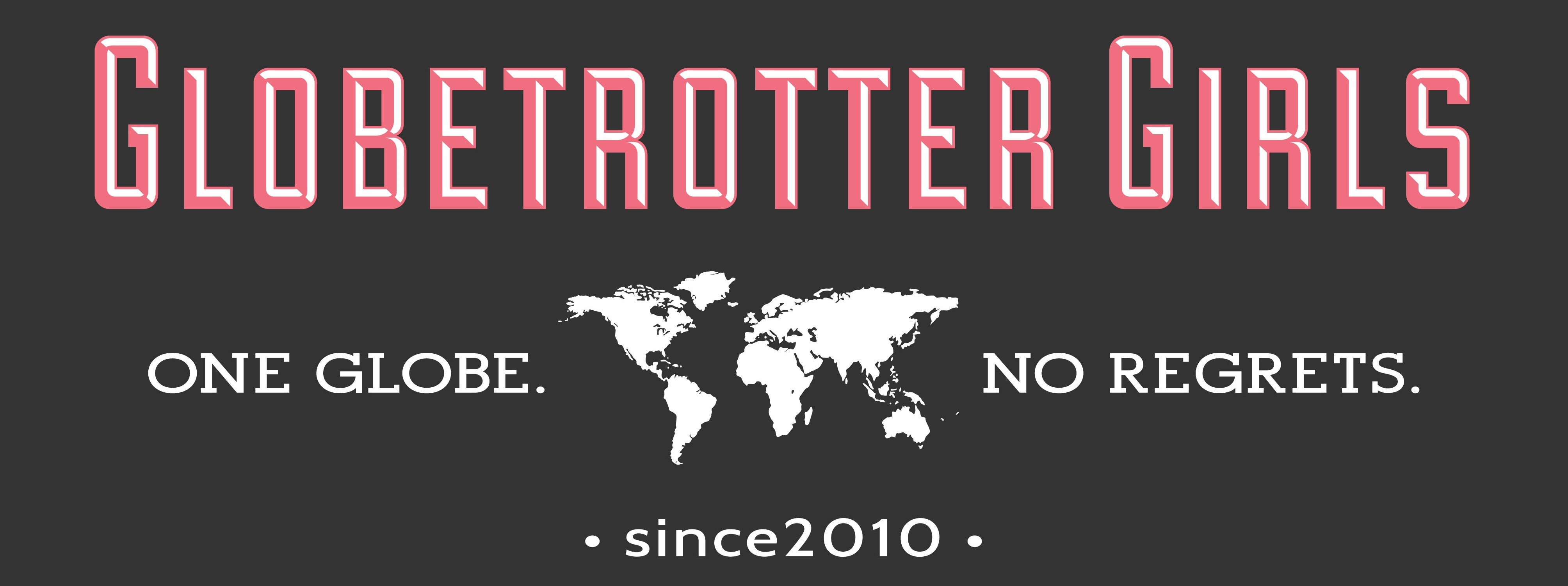Last Updated on January 18, 2026
You may have heard of a little song called Gangnam Style, by a South Korean singer, Psy. Although never intended for a global audience, Psy’s video was the first one ever to reach one billion views (currently at 1.6 billion) on YouTube, beating even Justin Bieber to this incredible feat.
If you’ve watched the video, and odds are that you have, then odds are also good that you do not understand more than a few words or understand the background or cultural references. Psy himself might come off as cartoonish.
Justin Bieber is also cartoonish, you say? True, but there is little question as to how the Beebs catapulted to global fame. It is something deeply primal, spanning all cultures. It was the hormones of teenage girls, beating in unison to Baby, Baby, Baby, that lifted the Canadian to the top.
But Psy is a middle-aged entertainer who is not even part of Korea’s K-Pop scene. So what is the connection that we all felt to Psy?
I ask because as we traveled this past year, this song followed us everywhere, but also because Gangnam Style is not the first song to make us stop and wonder about how people across cultures connect to the same music. Neither of us will ever forget, for example, that in the tiny remote village of Todos Santos, in Guatemala, the incidence of Eminem fans is literally off the charts. Em’s face is on t-shirts worn under their open shirts, and I distinctly remember watching a group of boys rap ‘Lose Yourself’ at a park next to a bench where their grandparents and parents sat with their younger brothers and sisters, all dressed in traditional indigenous attire.

Like teenage boys anywhere in the world, these Todos Santos boys were playing videos games and rapping to Eminem.
What is their connection to Eminem, a white rapper from the U.S. whose struggles are entirely other than their own?
Just writing that makes me feel like a hypocrite, if I’m honest, as I remember my best friend and I at 14 years old rapping through the entire Doggystyle CD in front of the living room mirror in my suburban neighborhood outside of Chicago. Just what we connected to with Snoop’s song Lodi Dodi, about low-level hookers looking to score drugs or Murder Was The Case, about Snoop being on trial for murder, I’ll never know.
Years later, after the East Coast / West Coast wars died down with the loss of Tupac and the Notorious B.I.G., a friend in the peace corps in Africa told me that several shacks in their rural village had Tupac and Biggie forever scrawled on the outside. How did Africans connect to the messages and images that these two African-Americans rappers were projecting? Stories of their struggle, race identification, drugs, violence were the first ideas to come to mind, but then I quickly realized that much of America, not just black America, had strong feelings not only about their deaths, but by that time, had connected to their music in life. Maybe that is what makes rap so fascinating, that so many people connect to stories like Tupac’s tribute to the struggle of the single mother in Brenda’s Got a Baby or blaming his mother for turning his brother into a crack baby in Keep Ya Head Up.
This was the period of my life when a deep interest in intercultural communication and media studies awoke inside me, a passion that only grows as we travel the world.
The Tip of the Iceberg
Gangnam Style in particular makes me think of what is understood by intercultural academics and international business owners as the tip of the iceberg. The iceberg model illustrates that only the 10% of a culture that pops out above water is easily understand, and that 90% of it is hidden underwater. With YouTube, Facebook, Twitter, global blogs and news of the online world, we are more aware than ever before of that top 10% of cultures around the world – this includes language, music, food, gestures, clothing and rituals. Under the surface, within that 90%, lie more ingrained parts of culture including values, beliefs and attitudes which are intangible, hard to articulate, and because they are almost invisible, they are dangerously easy to ignore. yet they form the majority of each of our culture.
I often wonder if this means that we are all developing a false sense of connectedness from what we can glean from YouTube, or if, as in reality, the iceberg model is also melting into a flood of a new world order?
Like Psy – what is it that has made him the most famous South Korean ever? His own countrymen, while proud, are also puzzled and this article in the Wall Street Journal highlights that Koreans themselves wonder if those of us on the outside who do not understand the background and the subtext are laughing with him (as they are) or if they are laughing at him? In reality, Psy is the black sheep son of a wealthy, well-connected Korean family who is very much involved in the style of the Gangnam area of Seoul he is poking fun at. Koreans are worried that the global audience is celebrating him because he confirms a deep, but quiet stereotype of a goofy, quirky Asian aesthetic?
Whatever the case, his follow-up hit has proven to be a huge success and I desperately hope that he does not change to fit a more transnational (read: bland) style.
He can leave that to Shakira as far as I’m concerned.
A move toward trans-nationality
Man, I used to love Shakira – like listen to her albums on repeat for hours. In fact, I’d say that belting out super fast, hard to pronounce lyrics like ‘torpe traste testaruda‘ (from her song Ciega, Sordomunda) kicked my Spanish up to near native levels.
That’s right kids, Shakira used to speak Spanish! She was an indie, creative, dark-haired Lebanese-Colombian singer celebrating her multicultural roots. Her bare feet, guitar and still pop-friendly vibe is what attracted us all back then. Today, she is a blond, English-speaking Latina caricature and while her hips most certainly don’t lie, I wonder whether Shakira gained worldwide success by appealing to that top 10% of the iceberg, fitting into an easily recognizable sexy Latina stereotype that is easier for Malaysians or Thais to wrap their heads around? Because no matter her current success, nothing in recent years has come close to topping her 1998 Donde Estan Los Ladrones album.

Street Art in Buenos Aires, Argentina of Cuban singer Omara Portuondo, part of Buena Vista Social Club
Her blond hair and thinning Spanish accent even has some American academics interested in Media, Culture and Latino Studies studying Shakira’s role in the changing representation of the Latin American immigrant in U.S. society, rather than her role as a Colombian ambassador. Is becoming transnational in music the only way to reach the coveted global audience?
A niche ending – Country Roads
I’ll end all of this pondering by revealing a little known secret about Germans. If I asked you to name an American singer oddly popular in Germany, you’d probably all say, in unison, David Hasselhoff. But they don’t love The Hoff the way other countries think they do. They just don’t spit on him or make too much fun of him, and because he played a song about looking for freedom the day the Berlin Wall fell, they’ll continue to tolerate him. There is more room in European music and pop culture for minor celebrities to enjoy steady, if low-level, notoriety than in his native United States.
But what you probably don’t know is this: Germans have connected and incorporated Take Me Home, Country Roads, by John Denver, into their culture. Almost any German under the age of 70, even if they don’t speak much English at all, can at least sing the chorus to Country Roads. Need proof? Check out this footage of Country Roads being sung at Oktoberfest in 2010.
No matter my decade-plus close contact with the German folk or that I feel I understand a huge chunk of the 90% of submerged iceberg, I can’t understand what makes them belt out at the top of their lungs – WEST VIRGINIA! as though their ancestors came from there, and not the other way around. Ironically, John Denver had never even been to the state, quoted as saying the song should refer to somewhere ‘exotic’ and West Virginia might as well have been in Europe, it seemed so foreign.
How does the world experience music differently?
What I wonder as I wander and listen to the same music around the world is about the connection that each culture makes to these global hits and their singers. When Rihanna tours in Russia, do they love her and her music in a different way to the way her fans do when she is in the Philippines? What connection do fans in Tokyo make with Jay-Z and is it any more or less authentic or real than for those listening in Brooklyn’s Marcy Projects, where Jay was born and raised? Do Lady Gaga’s Little Monsters in different parts of the world have anything in common except for being Gaga fans?
And yet, pop stars, along with actors and other celebrities, star in the soap operas of our lives, splashed across magazines and in videos online. We all share them in common. No matter where you are in the world, you can strike up a conversation about about Gangnam Style now. We all have that in common.
Does music unite us, or does it actually give a false sense of connection in a global world?








Scott
Monday 10th of June 2013
Can definitely vouch for "Country Roads" at Oktoberfest, it is without a doubt the most enthusiastically sung song by the throngs with "Summer of 69'" right behind it. It is odd isn't it? But then when you think of it, funny how "Summer of '69" is one of my favorite songs and I was born in '77 and can't relate to any of it, but I hold it as a memory of my youth. Music bonds us in strange ways though, that's for sure.
Jess
Thursday 13th of June 2013
Scott that's so funny that you bring up Summer of 69. My dad used to make fun of me because I'd sing so loud to that when it came on in the car and he was like, what in the world do you relate to in this song?! Found out a couple of years later, Bryan Adams himself also was too young to have even been there at that time, too!
Paige Conner Totaro
Monday 10th of June 2013
Great article, and excellent points.
I can tell you that the Indonesians also have a thing for John Denver. (And Air Supply, which I can only think must be a geographic thing.) A couple of years ago, we were participating in the world's largest angklung ensemble in Washington, DC, put together by the Indonesian embassy there. The song they chose for us to perform was indeed, Take Me Home, Country Roads. It was rather surreal.
Jess
Thursday 13th of June 2013
You've got to be kidding, Paige! I am so going to keep my eyes open for a John Denver connection when we finally make it to Indonesia! :)
Rease
Saturday 8th of June 2013
I definitely think that music is experienced totally differently around the world. I am so glad you mentioned Gangham style. Oddly enough, about 2-3 months before that song blew up in the US, I met a friend of my boyfriend's who had spent the last several years living in Korea. He played the song for us (back then his youtube had very minimal views) and actually explained what the whole song was about. When it blew up in the US, I definitely got the feeling that everyone just thought of him as sort of an Asian Weird Al or something.
Sidenote, I also remember in 2006, the Black Eyed Peas song "My Humps" was super popular in Argentina. They translated it and it was HILARIOUS. "Mis curvas, mis curvas, mis curvas, mis curvas mis curvas. Que vas hacer con todas sus curvas? todas sus curvas? todas sus curvas? Voy a hacerte trabajar, trabajar, trabajar" hahaha
Jess
Thursday 13th of June 2013
An Asian Weird Al - exactly. But actually he and others like him are part of a genre of music that is more intellectual and though it is funny, it's also respected in a way that Weird Al could never be! :) So that's the thing about that whole iceberg that I was talking about. On that other note - mis curvas? That doesn't even fit in the rhythm! I can't stand bad translations!!!!
Charli l Wanderlusters
Tuesday 4th of June 2013
I've often wondered if the lyrics of the songs we hum as we walk down the street are speaking to us on a subconscious level or if it's just the catchy beat that has got us hooked.
So often we leave one country and enter another and there are a few songs that seem to cross the border with us. It would be fascinating to do a study, picking out a few individuals from across the globe and asking them why a #1 hit is playing on repeat in their car.
As ever a great article with some thought provoking content. I'm off to try and snake my hips like Shakira. Dam that girl is in good shape!
Jess
Thursday 6th of June 2013
Thanks for your thoughts and ponderings Charli! I am quite surprised that you give people so much credit rather than blaming the music industry for promoting/playing so many of the same songs on the radio/TV though! I always think of it as an global industry thing rather than people's choices...dunno!
Digital Nomads
Tuesday 4th of June 2013
Very deep and worth thinking kinda topic. Loved it.
It's really impressive how music changes and how people around the globe react to it. WHile in Bolivia, we stayed a whole month in Cochabamba and the daily song kept playing all around the city was Gangnam.
Really well written and organized thoughts.
Jess
Thursday 6th of June 2013
Hey thanks guys! Appreciate it. Funny about Gangnam Style, but that is exactly what I mean - we were mostly in South America for it, too, and I found it so interesting!